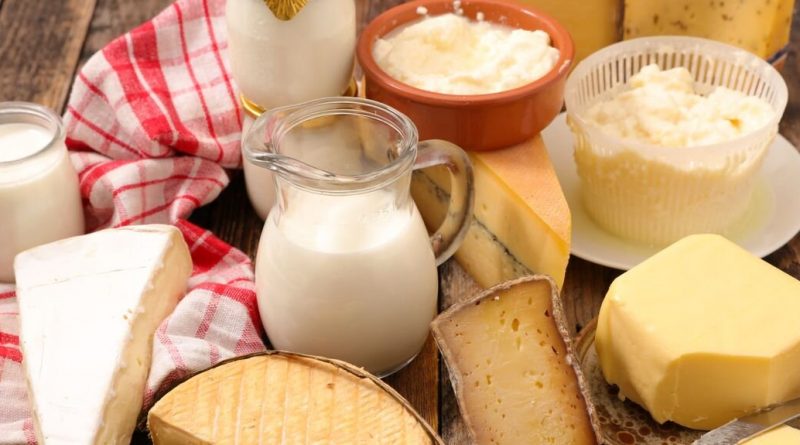Dairy products linked to increased risk of cancer

Overall evidence to date on whether eating dairy products affects the risk of cancer has been inconsistent. Studies on Western populations indicate that dairy products may be associated with a lower risk of colorectal cancer and a higher risk of prostate cancer, but have found no clear link for breast or other types of cancer. These results, however, may not be the same for non-Western populations, where amounts and types of dairy consumption and ability to metabolize dairy products differ greatly.
For instance, in China there is very little consumption of cheese and butter, and the consumption of milk and yogurt is also far lower than Western populations. In addition, most Chinese adults cannot properly metabolize dairy products due to lack of lactase, a key enzyme for breaking down the milk sugar lactose.
To establish whether dairy products affect the risk of cancer differently in Chinese people, researchers from Oxford Population Health, Peking University, and the Chinese Academy of Medical Sciences, Beijing, have today published the results of a new large-scale study in BMC Medicine. This collected data from over 510,000 participants in the China Kadoorie Biobank Study.
The participants (59% female, 41% male), who came from ten geographically diverse regions across China and joined the study between 2004 and 2008, had no previous history of cancer. When recruited, each participant (aged 30–79 years) completed a questionnaire about how frequently they consumed different food products, including dairy products. The researchers categorized the participants into three groups: regular dairy consumers (at least once a week), monthly dairy consumers, and people who never or rarely consumed dairy products (non-consumers).
Participants were followed-up for an average of around 11 years, and the researchers used data from national cancer and death registries as well as health insurance records to identify new cancer diagnoses. Both fatal and non-fatal events were included. The data analyses took into account a range of other factors that can affect cancer risk, including age, sex, region, family history of cancer, socio-economic status (i.e. education and income), lifestyle factors (i.e. alcohol intake, smoking, physical activity, soy consumption and fresh fruit intake), body mass index, chronic hepatitis B virus infection (for liver cancer), and female reproductive factors (for breast cancer).
The study found:
- Overall, around a fifth (20%) of the participants consumed dairy products regularly (primarily milk), 11% consumed dairy products monthly, and 69% were non-consumers. The average consumption was 38g per day overall in the whole study population and 81g per day among regular dairy consumers (compared with an average consumption of around 300g per day in participants from the UK Biobank).
- During the study period 29,277 new cancer cases were recorded, with the highest rate being for lung cancer (6,282 cases), followed by female breast (2,582 cases), stomach (3,577 cases), colorectal (3,350 cases) and liver cancer (3,191 cases).
- People who consumed dairy products regularly had significantly greater risks of developing liver and breast cancer. For each 50g/day intake, the risk increased by 12% and 17% respectively.
- Regular dairy consumption was associated with an increased risk of lymphoma (though this was not statistically significant).
- There was no association between dairy intake and colorectal cancer, prostate cancer, or any other type of cancer investigated.
Both liver and breast cancer are among the most common types of cancer in China, accounting for around 393,000 and 368,000 new cancer cases each year respectively. While these study results do not prove causation, there are several plausible biological mechanisms that may explain these associations, according to the researchers. Greater dairy consumption, for instance, may increase levels of insulin-like growth factor-I (IGF-I), which promotes cell proliferation and has been associated with higher risks for several types of cancer. Potentially, female sex hormones present in cow’s milk (such as estrogen and progesterone) may have a role in the increased risk of breast cancer, whilst saturated and trans-fatty acids from dairy products may increase the risk of liver cancer. For the majority of Chinese people who do not produce enough lactase, dairy products may also be broken down into products that affect cancer risk.
Dr. Maria Kakkoura, Nutritional Epidemiologist at Oxford Population Health, and the first author of the study, said: “This was the first major study to investigate the link between dairy products and cancer risk in a Chinese population. Further studies are needed to validate these current findings, establish if these associations are causal, and investigate the potential underlying mechanisms involved.”
Although the average level of dairy consumption in China remains much lower than in European countries, it has risen rapidly in recent decades.
Associate Professor Huaidong Du, Senior Research Fellow at Oxford Population Health, and one of the senior co-authors of the study, added: “Whilst our results suggest there may be a direct link between regular dairy consumption and certain cancers, it is important to be aware that dairy products are a source of protein, vitamins and minerals. It would not be prudent to reduce dairy consumption based solely on the results from the current study or without ensuring adequate intake of protein, vitamins and minerals from other sources.”
Source: Read Full Article



